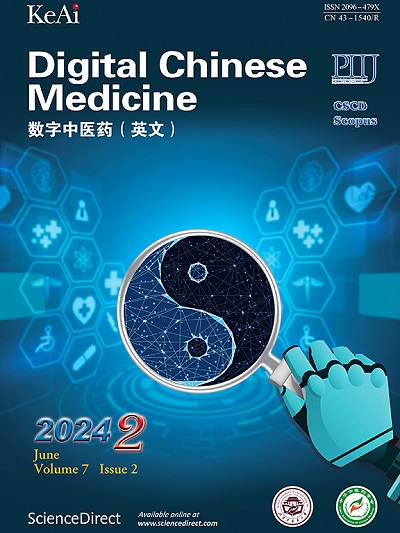通过孟德尔随机化和中医情绪理论验证负性情绪诱发慢性阻塞性肺疾病的致病机制
Q3 Medicine
引用次数: 0
摘要
目的采用孟德尔随机化(MR)方法检验中医理论的情绪病机概念,探讨负性情绪与慢性阻塞性肺疾病(COPD)的因果关系。方法从全基因组关联研究(GWAS)公共数据库下载患者的负性情绪、支气管炎、肺气肿和c反应蛋白(CRP)水平数据,进行两样本MR分析。与负面情绪、支气管炎和肺气肿相关的独立单核苷酸多态性(snp)被选为工具变量。主要因果估计使用反方差加权(IVW),辅以加权中位数(WM)和简单模式(SM)方法。敏感性分析包括评估多效性的MR- egger回归和MR- presso,异质性的Cochran 's Q检验,以及调整吸烟因素的多变量MR。中介分析评估炎症标志物的作用。反向MR检验双向因果关系。通过f统计阈值(>;10)。所有分析均在RStudio中进行。结果smr分析发现几种负面情绪对COPD有显著的因果关系。从遗传学角度看,就诊医生对神经焦虑、紧张或抑郁的IVW分析[ORIVW = 1.006, 95% CI = (1.002, 1.010), P = 0.002]、敏感/受伤感[ORIVW = 1.024, 95% CI = (1.004, 1.044), P = 0.017]和易怒[ORIVW = 1.019, 95% CI = (1.003, 1.035), P = 0.019]与COPD风险增加显著相关。不同工具变量(IVs)对抑郁(P = 0.655)和烦躁(P = 0.163)的影响不存在异质性。所有情绪暴露的MR-Egger回归截距接近于零,在统计上不显著,表明没有方向性多效性的证据。水平多效性结果显示,除了担忧(MR-PRESSO P = 0.006)外,其他情绪暴露证实没有明显的多效性偏差。多变量MR显示,在调整吸烟因素后,焦虑仍与COPD独立相关(P = 0.002),而与其他负面情绪的关联在调整后减弱。中介分析显示,CRP介导焦虑对COPD总影响的3.93%。然而,反向磁共振分析没有发现反向因果关系的证据。结论本研究通过MR分析证实了消极情绪与COPD的因果关系,揭示了消极情绪可能触发CRP的产生,而CRP在这一关系中起着重要的中介作用。本研究为中医情感理论提供了可靠的现代理论基础。本文章由计算机程序翻译,如有差异,请以英文原文为准。
Validating the pathogenic mechanism of chronic obstructive pulmonary disease induced by negative emotions via Mendelian randomization and traditional Chinese medicine theory of emotions
Objective
We employed Mendelian randomization (MR) to test the traditional Chinese medicine (TCM) theory of emotional pathogenesis concept and explore the causal relationship between negative emotions and chronic obstructive pulmonary disease (COPD).
Methods
Data of negative emotions, bronchitis, emphysema, and C-reactive protein (CRP) levels were downloaded from genome-wide association study (GWAS) public database for a two-sample MR analysis. Independent single-nucleotide polymorphisms (SNPs) associated with negative emotions, bronchitis, and emphysema were selected as instrumental variables. Primary causal estimates were derived using inverse-variance weighting (IVW), supplemented by weighted median (WM), and simple mode (SM) methods. Sensitivity analyses included MR-Egger regression and MR-PRESSO to assess pleiotropy, Cochran’s Q test for heterogeneity, and multivariate MR to adjust for smoking. Mediation analysis evaluated the role of inflammatory markers. Reverse MR was tested for bidirectional causality. Weak instrument bias was mitigated via F-statistic thresholds (> 10). All analyses were conducted in RStudio.
Results
MR analysis identified significant causal effects of several negative emotions on COPD. Genetically, the IVW analysis of seen doctors for nerves anxiety tension or depression [ORIVW = 1.006, 95% CI = (1.002, 1.010), P = 0.002], sensitivity/hurt feelings [ORIVW = 1.024, 95% CI = (1.004, 1.044), P = 0.017], and irritability [ORIVW = 1.019, 95% CI = (1.003, 1.035), P = 0.019 were robustly associated with increased risks of COPD. No heterogeneity was detected among the different instrumental variables (IVs) for depression (P = 0.655) and irritability (P = 0.163). MR-Egger regression intercepts for all emotional exposures were close to zero and statistically non-significant, indicating no evidence of directional pleiotropy. The horizontal pleiotropy results showed that except for worry (MR-PRESSO P = 0.006), other emotion exposures confirming no substantial pleiotropic bias. Multivariable MR demonstrated that anxiety remained independently associated with COPD after adjusting for smoking (P = 0.002), while associations with other negative emotions were attenuated post-adjustment. The mediation analysis revealed that CRP mediated 3.93% of the total effect of anxiety on COPD. However, reverse MR analysis found no evidence of reverse causality.
Conclusion
This study confirmed the causal effects of negative emotions on COPD through MR analysis and revealed that negative emotions may trigger CRP production, which plays an essential mediating role in this relationship. This study provides a reliable modern theoretical basis for emotion theory in TCM.
求助全文
通过发布文献求助,成功后即可免费获取论文全文。
去求助
来源期刊

Digital Chinese Medicine
Medicine-Complementary and Alternative Medicine
CiteScore
1.80
自引率
0.00%
发文量
126
审稿时长
63 days
期刊介绍:
 求助内容:
求助内容: 应助结果提醒方式:
应助结果提醒方式:


